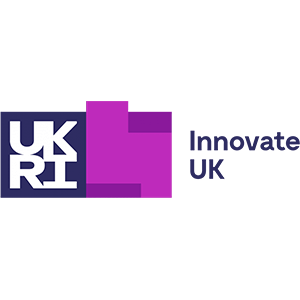Workshop: Science, Technology and Innovation Systems in Transitions
Overview
Shaping societal transformations and addressing pivotal challenges requires changing economies and societies towards modes of living, organising, working, moving and producing that are digitally empowered, less carbon and emissions intensive, and environmentally sustainable. Advancing on climate protection and the digitalisation and implementing sweeping change in a number of areas, from lifestyles to the ways scientific research is carried out, requires involving many different types of actor, including research organisations, industry, government, entrepreneurs and civil society. Yet many individuals and organisations lack skills and capabilities conducive to enabling and shaping the digital transformation and the green transition.
Addressing such new skills and capabilities requirements is a key challenge for the science, technology and innovation (STI) system, but also requires collaboration with a number of other policy areas, such as labour market and education policies.
This two day in-person event aims to contribute to the debate on how to best address the challenges the STI system faces among global crises. Commencing with the launch of the OECD’s STI Outlook 2023: Enabling transitions in times of disruption to provide a factual basis for discussion and food for thought on the future of STI, the event then features input from and discussions among experts from government, industry, academia and civil society.
With the goal to generate learnings and insights on advancing skills and capabilities in the STI system, the event will highlight perspectives and evidence from relevant institutions of the United Kingdom, but also offer context and insights from other OECD countries.
This event aims to address the following questions:
- Which methods and policies are available to identify skills and capabilities gaps in STI systems?
- How can STI actors assess which skills and capabilities will be needed to create innovation to advance transitions in the future?
- How can policy, in conjunction with industry, academia and civil society, support the development of such skills and capabilities? Which respective roles should the different sectors play?
- How can the development of skills and capabilities be conducive to advancing inclusiveness of the STI system?
In partnership with
This event is hosted by Digital Catapult in partnership with:



Agenda
08:30 – Arrival and registrations
09:00 – Welcome and Introduction to the Workshop
Moderator: Brian MacAulay, Principal Economist, Digital Catapult
- Jeremy Silver, CEO at Digital Catapult
- Tyler Rickard, Lead Analyst on Innovation Policy at Department for Science, Innovation and Technology & UK Delegate to the OECD Working Party on Innovation and Technology Policy
- Caroline Paunov, Head of the Secretariat of the OECD Working Party on Innovation and Technology Policy
- Alessandra Colecchia, Head of Science and Technology Division, Directorate for Science, Technology and Innovation at OECD
09:15 – UK Launch of the STI Outlook 2023: Setting the Scene – What is the STI Context for Transitions?
Presentation of key insights from the STI Outlook 2023:
- Michael Keenan, Senior Policy Analyst, Science and Technology Division at OECD
Comment by:
- Rosie Cornelius, Head of Analysis and Performance at UKRI
10:00 – Keynote Speeches – National Perspectives on STI Human Capital Formation
In the current contest of transitions with major changes happening quickly, developing skills and capabilities for future challenges is a pressing issue. This session will explore national approaches to forming STI human capital, guided by the following main questions:
- What can we rely on to assess future needs for skills and capabilities for innovation?
- What skills needs and gaps in STI for the transitions have been identified by countries?
- What policies are being implemented to address them? How do they compare across countries?
Moderator: Brian MacAulay, Principal Economist, Digital Catapult
Speakers:
- Will Hutton, President at Academy of Social Sciences
- Kate Pounder, CEO at Technology Council of Australia
- David Wilkes, Director – Ecosystem at Innovate UK
11:00 – Coffee Break
11:30 – Panel Discussion – Policy Responses: Novel Tools and Approaches to Build STI Capabilities
This panel features representatives of projects which have put in place or are developing novel tools and approaches to address skills and capabilities gaps in STI.
Moderator: Caroline Paunov, Head of the Secretariat of the OECD Working Party on Innovation and Technology Policy
Speakers:
- Tom Kenyon, Head of Enterprise Design at The Royal Society for the Encouragement of Arts, Manufacturers and Commerce (RSA)
- Debbie Johnson, Head of Innovation Talent & Skills at Innovate UK
- Tim Vorley, Professor and Dean at Oxford Brookes Business School
- Kathie Bowden, Skills Manager at Satellite Applications Catapult
13:00 – Lunch
14:00 – Panel Discussion – Building STI Human Capital at Regional and Local Levels
This panel will explore the role of sub-national level in skills and capabilities development for STI, guided by the following questions:
- How can regional and local institutions best identify the skills and capabilities already available to them?
- How can we address, in a forward-looking manner, the changing nature of business needs that will affect their local circumstances given the transformative nature of the green and digital transition (e.g. stranded assets due to move to low-carbon production, or transfer of jobs from material production to digital services)?
Moderator: Ashmita Randhawa, Head of Innovation at Digital Catapult North East Tees Valley
Speakers:
- Phil Smith, Co-Chair at Digital Skills Council
- Sarah Haywood, Managing Director at Advanced Oxford
- Abby Burr, CPI at High Value Manufacturing Catapult, North East England
- Anna Lundgren, Senior Research Fellow at Nodregio
Q&A with the audience
15:30 – Coffee Break
16:00 – Panel Discussion – Key Factors Influencing STI on Human Capital and How to Determine the Future of Skills
The session will identify factors playing a role in skills and capabilities development and explore the future needs and how to determine them.
A hybrid panel discussion will deliberate the following questions:
- Where we are still missing knowledge and where are skills gaps developing? How to identify quickly evolving skills needs (and gaps) for STI? How can governments anticipate those needs?
- What are the skills and capability needs of sectors that are central in a context of transitions? What are most pressing skills gaps faced by those sectors? How is industry addressing those gaps?
- What have been some skills development related initiatives, approaches, and policy considerations? What is the potential future for human capital development efforts?
- How can we measure the impact of government-funded skills training programs on human capital development? How we can leverage new methodologies, such as causal machine learning, to better understand “what works for whom”?
Moderators:
- Claudia De Fuentes, Associate Professor; Innovation and Entrepreneurship for Sobey School of Business at Saint Mary’s University
- Nikolas Schmidt, Policy Analyst at OECD
Speakers:
- Joniada Milla, Assistant Professor of Economics at Saint Mary’s University, Canada
- Will Gibbons, Director of Data Science, Development and Research, Results Division, Expenditure Management Sector at Treasury Board of Canada
- Andy Handouyaiha, Director at Employment and Social Development Canada
- Stephen Stewart, Head of Skills & Apprenticeships at the Cell & Gene Therapy Catapult
- Daniel Meredith, COO, Enginuity
17:30 – Wrap Up and Participant Reflections
Throughout the day there will be ample opportunity to discuss the issues with other participants and leave written reflections on a prepared wall/poster/flipchart with specific questions/themes:
- Skills and capabilities needs in STI – what future trends can we expect and how can policy shape them in order to advance transitions?
- What might be the bottlenecks and skills gaps in the future – how can needs in industry and SMEs be communicated and then translated into effective policy and (academic) training to respond to them?
In the final session of the day, speakers will summarise the proceedings of the day and reflect upon these written inputs received.
18:00 – Event ends
Location
Digital Catapult
101 Euston Rd, Kings Cross, London, NW1 2RA
